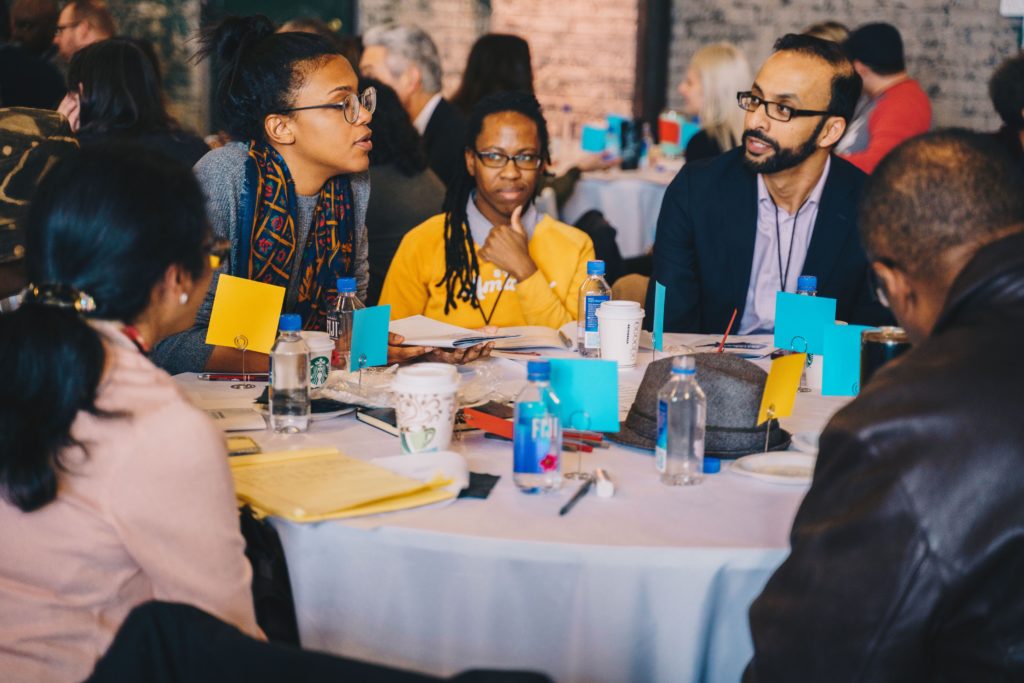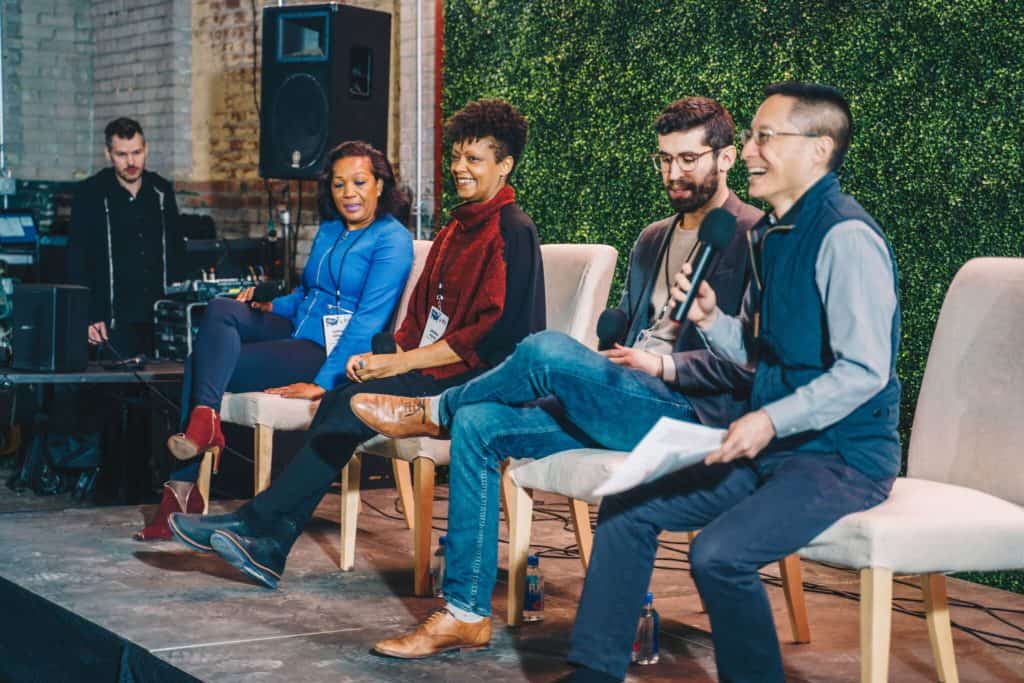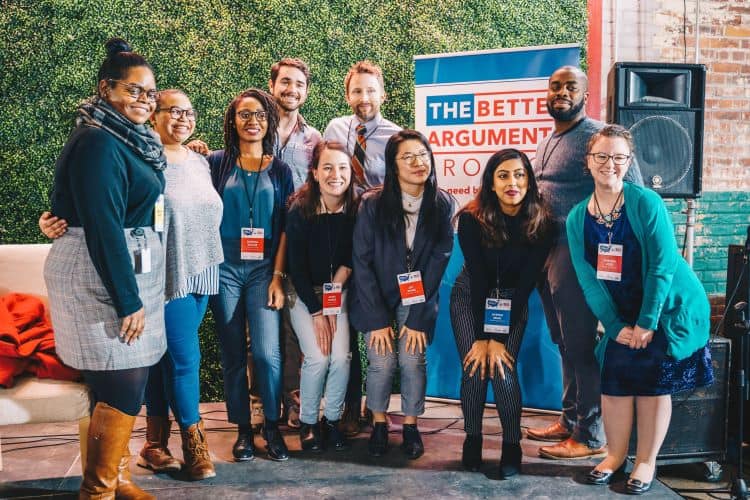Angry. Impatient. Frustrated. Excited. Non-trusting. Hopeful. Inspired. Enthusiastic. Betrayed. Tired.
These were some of the answers shouted from the 200-person crowd at Eastern Market during last Thursday’s Better Arguments Project discussion when speaker Jennifer Jones-Clark asked, “How do you feel about changes happening in Detroit?”
Jones-Clark is a program consultant for the international nonprofit Facing History and Ourselves. It is partnering with the Aspen Institute and the Allstate Corporation to encourage Americans to engage in more productive dialogue about core American ideals through the Better Arguments program.
In the case of Detroit, the focus, driven by local partner Urban Consulate, was to delve thoughtfully into how participants felt about Detroit’s evolution and to talk about the arguments they’re hearing or having related to the place of newcomers and longtimers.
“Detroit is a great American city that embodies the opportunities, challenges, and arguments that shape civic life — especially the tensions between longtimers and newcomers,” said Eric Liu, executive director of the Citizenship and American Identity Program at the Aspen Institute. “Those tensions are about race, class, place, and respect and because the style in Detroit is to get real. … We thought it’d be a great location to invite people into better arguments.”
The morning involved a structured program of remarks, including a spoken piece by writer and Detroitist Marsha Music and a panel discussion moderated by Liu that looked at stereotyping and how a better argument would be one in which we face history and ourselves. Liu asked panelists to weigh in on how to have a better argument.
African American panelist Lauren Hood, a longtime Detroiter who heads up her consultancy Deep Dive Detroit, said, “Enter from a space of self-awareness. Be mindful of your own biases. You have to know yourself and not be afraid of what your biases are.”


